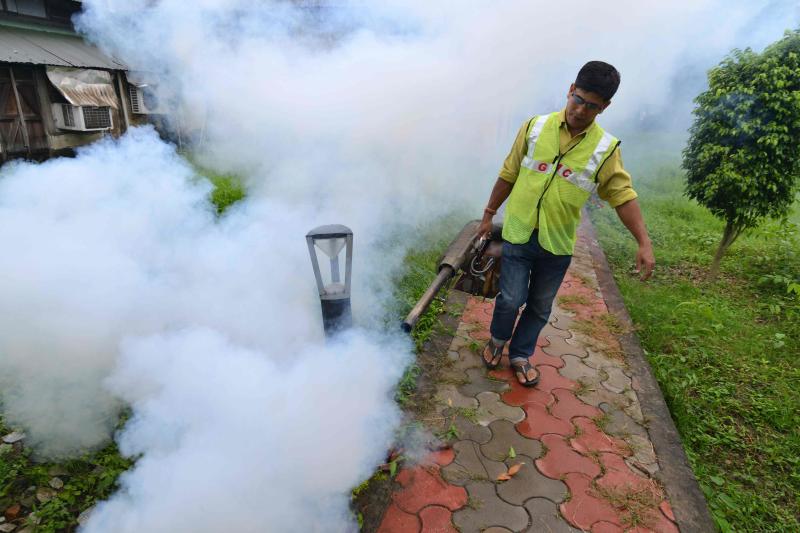Singapore has role to play in eradicating malaria globally by 2050, cannot let guard down: Expert
Sign up now: Get ST's newsletters delivered to your inbox

A worker fumigates to combat dengue and malaria, at a residential area in Guwahati, India, on Sept 24, 2019. Singapore itself was officially registered as malaria-free in 1982.
PHOTO: AFP
Timothy Goh
Follow topic:
SINGAPORE - The scourge of malaria is being pushed back around the world, with 23 countries eliminating the disease since 2000.
But more must be done if it is to be eradicated entirely from the planet by 2050, and Singapore has a role to play in that effort, said Sir Richard Feachem, co-chair of The Lancet Commission on malaria eradication, on Tuesday (Oct 8).
He was speaking at the Asia-Pacific launch of the Commission's report on malaria eradication at the Lee Kuan Yew School of Public Policy.
The report, which was authored by 41 of the world's leading experts, said that malaria could be wiped out around the globe by 2050.
Countries in the region, including China, Malaysia and Timor-Leste, recently reported zero cases of indigenous malaria, and Bhutan and Nepal are on the cusp of eliminating the disease.
Sir Richard said: "For too long, malaria eradication has been a distant dream, but now we have evidence that (it) can and should be eradicated by 2050."
But he has also cautioned that until it is eradicated, every tropical country with a large mosquito population had to be vigilant.
Singapore itself was officially registered as malaria-free in 1982 - a far cry from the early 20th century when about 2,000 people would die from the disease every year, said Sir Richard.
But he warned that there was still a risk of the disease returning to the island.
"Singapore should care about malaria in the region because there is constant importation of the disease here."
"People coming into Singapore from Indonesia, or India, or Cambodia... or other countries in this region may well bring malaria in... and the malaria mosquito still lives in Singapore, it hasn't gone away," he said.
Malaria is transmitted via the bite of infected female Anopheles mosquitoes.
Sir Richard said that Singapore, although small in size, could still play an important role in the fight against the disease.
For instance, said Sir Richard, Singapore could invest in regional initiatives against malaria, helping neighbouring countries eliminate the disease.
He added: "Singapore is a country with exceptional academic, scientific and intellectual resources, so I see definitely potential... for Singapore to be a place where people come for training relevant to malaria control and elimination, which they take back to their home country."
Earlier during the event, Foreign Minister Vivian Balakrishnan said the Republic would support the global push against malaria.
He said: "Singapore is acutely aware of the need for a multilateral approach when dealing with complex global challenges like malaria... we will support these worthy initiatives (and) make this world a healthier place for everyone."

